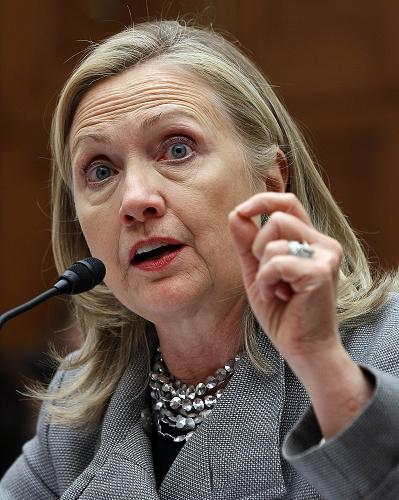DPRK to suspend nuclear activities
 0 Comment(s)
0 Comment(s) Print
Print E-mail Xinhua, March 1, 2012
E-mail Xinhua, March 1, 2012
The Democratic People's Republic of Korea (DPRK) said Wednesday it would suspend nuclear tests, long-range missile launches, and uranium enrichment activity as agreed with the United States in recent bilateral talks.
"The DPRK, upon request by the U.S. and with a view to maintaining a positive atmosphere for the DPRK-U.S. high-level talks, agreed to a moratorium on nuclear tests, long-range missile launches, and uranium enrichment activity at Nyongbyon and will allow the IAEA to monitor the moratorium on uranium enrichment while productive dialogues continue," a foreign ministry spokesman told official news agency KCNA.
The move came after high-level DPRK-U.S. talks in Beijing last week.
In an almost simultaneous announcement, the U.S. government confirmed that the DRPK has agreed to the suspension.
"To improve the atmosphere for dialogue and demonstrate its commitment to denuclearization, the DPRK has agreed to implement a moratorium on long-range missile launches, nuclear tests and nuclear activities at Nyongbyon, including uranium enrichment activities," U.S. State Department spokeswoman Victoria Nuland said in a statement.
She said the DPRK had also agreed to the return of U.N. inspectors to "verify and monitor the moratorium on uranium enrichment activities at Nyongbyon and confirm the disablement of the 5-MW reactor and associated facilities."
Despite "profound concerns" regarding DPRK's behavior, Nuland said the announcement reflected "important, if limited, progress."
She added the United States had agreed to meet the DPRK to finalize the details to move forward with proposed American food aid of "240,000 metric tons of nutritional assistance."
The DPRK and U.S. delegations met in Beijing on Feb. 23-24 for the third round of the high-level talks, after previous meetings in July and October last year.
Both the DPRK and the U.S. affirmed it was in their mutual interest to ensure peace and stability on the Korean Peninsula, improve bilateral relations, and push ahead with denuclearization through dialogue and negotiations, a DPRK spokesman said.
Both sides reaffirmed their commitments to the Sept. 19 Joint Statement and recognized that the 1953 Armistice Agreement was the "cornerstone of peace and stability" on the Korean Peninsula before the signing of a peace treaty.
They also agreed to take measures aimed at building confidence and improving relations between the DPRK and the U.S., the DPRK spokesman said.
"The U.S. made it clear that sanctions against the DPRK are not targeting the civilian sector, including the livelihood of people," the spokesman said.
"Once the six-party talks are resumed, priority will be given to the discussion of issues concerning the lifting of sanctions on the DPRK and provision of light water reactors," he said.






